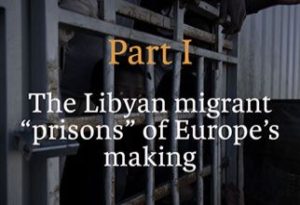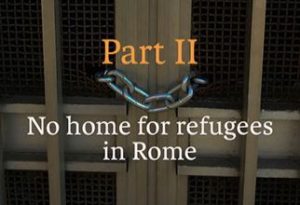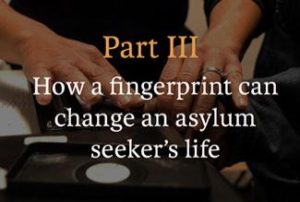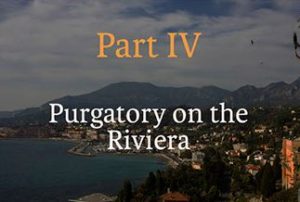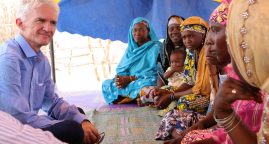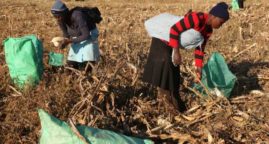Nowhere to go
Article published on Irin website on november 2017 by Eric Reidy
A four-part story explaining the struggle that migrants face in their journey to seek refuge and economic opportunity in Europe. Report between October to November 2017.
Italy has received the vast majority of asylum seekers arriving in Europe over the past two years. As politics across the continent shift to the right, what effect is it having on the lives of the hundreds of thousands of people who find themselves increasingly isolated and stuck inside Italy’s borders?
More than one million people crossed the Mediterranean Sea between January 2015 and January 2016. For several months, the stories of desperate and determined people fleeing war-torn countries, brutal dictatorships and crushing poverty dominated the global news cycle – and then it stopped.
The European Union and Turkey signed a deal that led to a sharp decrease in the number of asylum seekers arriving on Europe’s shores, and the stories about their lives and the hardships they faced faded into the background. But the refugee crisis did not begin or end during those dramatic months. People have been crossing the Mediterranean to seek refuge and economic opportunity in Europe at least since the 1990s.
And while clandestine migration between Turkey and Greece was put on hold, it has continued unabated between Libya and Italy. Since 2014, more than 600,000 asylum seekers have crossed the central Mediterranean and 13,000 have drowned attempting the passage – making it the deadliest migration route in the world. The people who make the voyage are largely from East and West Africa: Eritreans; Somalis; Sudanese; Nigerians; Malians; Gambians; and others. Many are fleeing conflict and repression. Some are simply looking for a better future. They all arrive in a Europe that is fed up.
Share their journey, reported in four parts, from brutal detention centres in Libya to squat evictions in Rome and up to the French border where they run the gauntlet to try to get to Northern Europe.
Related Articles
INTERVIEW: Global humanitarian needs have never been higher, says UN official
10/02/2017. The number of those needing humanitarian assistance is at its highest since the end of the Second World War – some 145 million people.
World hunger on the rise as 820m at risk, UN report finds
07/15/2019. Eliminating hunger by 2030 is an immense challenge, say heads of UN agencies
The Future of Humanitarian Response 2017
02/14/2017. In 2015, the World Economic Forum began working with leaders from across sectors to develop a coherent conversation around humanitarian issues.


